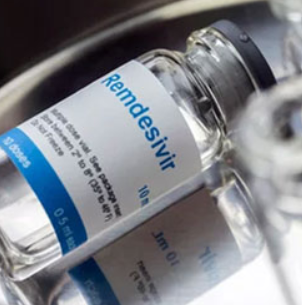
Dr. Scott Gottlieb on Finding Cures for Rare Diseases
Former FDA Commissioner Dr. Scott Gottlieb joins ‘Squawk Box’ to discuss the ongoing research and efforts at the FDA to find cures for rare diseases.…
Thought Leader: Scott Gottlieb

The use of remdesivir (Veklury, Gilead) can have significant benefits for immunocompromised people with COVID-19, reducing mortality by 30%.
Using the treatment promptly in these patients can provide a significant survival benefit, and is effective across all virus variants, said the authors of a recent report (Clin Infect Dis 2023;77[12]:1626-1634.https://doi.org/10.1093/cid/ciad460).
“Upon conclusion of the public health emergency, SARS-CoV-2 remains at least as consequential as influenza in our daily lives,” said Robert L. Gottlieb, MD, PhD, a cardiology specialist at Baylor Scott & White Heart & Vascular Hospital?Dallas. “Among those with risk factors, patients with immunocompromising conditions or immunosuppressing medications continue to have an elevated risk compared with the general population. While we have become accustomed to patients being admitted with incidental COVID-19, we still have some patients, such as those who are immunocompromised or with renal dysfunction, being hospitalized for COVID-19. We know their response to vaccination may be blunted. So, it is important to have an arsenal of effective antivirals as a treatment strategy.”
The study included 19,184 patients who received remdesivir within two days of hospitalization, who were matched 1:1 using propensity score matching to 11,213 patients who did not receive remdesivir.
Overall, 11.1% and 17.7% of remdesivir patients died within 14 and 28 days, respectively, compared with 15.4% and 22.4% of patients who did not receive remdesivir. This caused remdesivir to be associated with a 30% lower risk for all-cause in-hospital mortality at 14 days, and a 25% lower risk at 28 days.
“Ideally we would treat patients with COVID-19 as early as possible, and treat upstream of hospitalization,” Dr. Gottlieb said. “Ritonavir-boosted nirmatrelvir [Paxlovid, Pfizer] works well, but the solid organ transplant recipients I treat cannot safely receive Paxlovid due to unmanageable drug?drug interactions. Many other immunocompromised people have complex medication regimens that need to be checked carefully.
“Once hospitalized for COVID-19, remdesivir is the only evidence-based, effective antiviral. But it only works if it is prescribed,” Dr. Gottlieb said.
“People who have any respiratory virus want to feel better and mitigate their health risks,” he added.
People take antivirals for influenza, such as oseltamivir or baloxavir (Xofluza, Genentech) to feel better.
“We also do not excessively steward these antivirals for influenza, and we need to transition to the same paradigm for SARS-CoV-2 and its COVID-19 illness. In both randomized controlled trials and real-world data, remdesivir has demonstrated benefits for robust, hard clinical end points, including decreasing the risk of death, decreasing time to clinical recovery and decreasing the risk of COVID-19 progression.”
Dr. Gottlieb is hopeful that future developments, such as a pill form of remdesivir, could allow for more widespread use of the medication in nonhospitalized patients to prevent progression to hospitalization.
“The take-home message for our study is that patients with immunocompromising medications or conditions who develop COVID-19 should be treated as soon as they present and are diagnosed,” he said. “It really dispels the ‘watchful waiting’ approach. Why wait to start a safe and effective antiviral, which would miss the opportunity to treat a patient while viral replication is driving the subsequent risk? Simply put, remdesivir appears to save lives.”
Dr. Scott Gottlieb on Finding Cures for Rare Diseases
Former FDA Commissioner Dr. Scott Gottlieb joins ‘Squawk Box’ to discuss the ongoing research and efforts at the FDA to find cures for rare diseases.…
Thought Leader: Scott Gottlieb
Peter Zeihan: U.S. Navy Seizes Russian Tanker
The US Navy just seized a shadow fleet tanker that managed to slip past the naval quarantine around Venezuela. The tanker reflagged as Russian while…
Thought Leader: Peter Zeihan
Erika Ayers Badan: Surviving Company Failure
In this episode of WORK: Unsolicited Advice, Erika talks through what it really looks like to come out of the worst month of your career…
Thought Leader: Erika Ayers Badan

